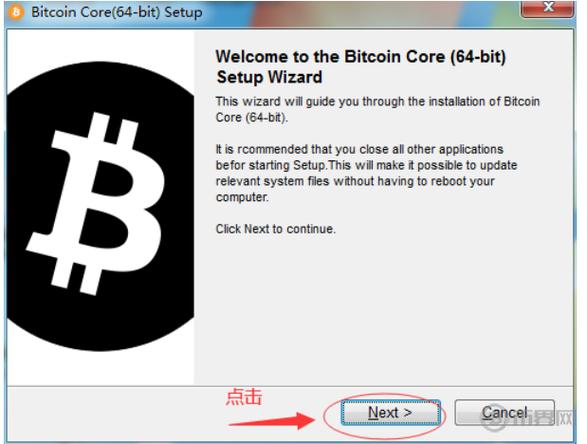比特币装什么软件最好
Title: Exploring Bitcoin Software: Essential Tools and Recommendations
Bitcoin, as a decentralized digital currency, relies on specific software for various functions, including transactions, storage, and security. To engage with Bitcoin effectively, users typically require several types of software. Let's delve into the essential software options and recommendations for Bitcoin enthusiasts:
Bitcoin Wallet Software
Bitcoin wallets are fundamental for storing, sending, and receiving bitcoins. They come in various forms, each with its unique features and security measures:
1.
Desktop Wallets
: These are software applications installed on your computer, providing full control over your funds. Examples include Electrum, Bitcoin Core, and Exodus. Desktop wallets offer robust security features but may require more technical knowledge.2.
Mobile Wallets
: Ideal for users who prefer managing their bitcoins on the go, mobile wallets like Mycelium, Breadwallet, and Coinomi provide convenience and accessibility. However, users must ensure the security of their mobile devices to prevent unauthorized access.3.
Hardware Wallets
: For maximum security, hardware wallets such as Ledger Nano S, Trezor, and KeepKey store bitcoins offline, protecting them from online threats like hacking and malware. Hardware wallets are considered the safest option for longterm storage of significant amounts of bitcoins.Bitcoin Exchange Software
Bitcoin exchanges facilitate the buying, selling, and trading of bitcoins and other cryptocurrencies. When choosing a Bitcoin exchange platform, factors such as security, fees, liquidity, and user experience should be considered:
1.
Centralized Exchanges
: Platforms like Coinbase, Binance, and Kraken offer a userfriendly interface, extensive trading pairs, and high liquidity. However, users must trust the exchange to secure their funds adequately, as centralized exchanges are susceptible to hacking and regulatory risks.2.
Decentralized Exchanges (DEX)
: DEX platforms such as Uniswap, SushiSwap, and PancakeSwap enable peertopeer trading without the need for intermediaries. While providing greater privacy and control over funds, decentralized exchanges may suffer from lower liquidity and higher transaction fees.Bitcoin Mining Software
Bitcoin mining involves validating and adding transactions to the blockchain while also securing the network through computational power. To engage in mining, miners require specialized software compatible with their mining hardware:
1.
ASIC Mining Software
: ApplicationSpecific Integrated Circuit (ASIC) miners, which dominate Bitcoin mining, typically come with proprietary mining software provided by the hardware manufacturer. Examples include Bitmain's Antminer series and MicroBT's Whatsminer series.2.
GPU/CPU Mining Software
: While less efficient than ASICs for Bitcoin mining, graphics processing unit (GPU) and central processing unit (CPU) mining software like CGMiner, BFGMiner, and NiceHash enable users to mine alternative cryptocurrencies (altcoins) that are more GPU/CPUfriendly.Bitcoin Node Software
Running a Bitcoin node contributes to the network's decentralization, resilience, and security by validating and relaying transactions. Node operators can choose from various software implementations, including:
1.
Bitcoin Core
: Developed by the Bitcoin Core project, Bitcoin Core is the reference implementation of the Bitcoin protocol. It offers a full node implementation with a graphical user interface (GUI) and extensive customization options.2.
BTCPay Server
: BTCPay Server allows merchants to accept Bitcoin payments directly, bypassing traditional payment processors and maintaining full control over their funds. It also supports Lightning Network payments and other cryptocurrencies.Recommendations and Best Practices
Regardless of the software chosen, Bitcoin users should prioritize security and adhere to best practices:
1.
Secure Your Private Keys
: Safeguard your private keys, whether stored in a wallet software or hardware device, by using strong passwords and enabling additional security measures like twofactor authentication (2FA).2.
Stay Informed
: Keep yourself updated on the latest developments, security vulnerabilities, and best practices in the Bitcoin ecosystem through reputable sources such as forums, news websites, and community channels.3.
Diversify Your Holdings
: Consider diversifying your cryptocurrency holdings across multiple wallets and exchanges to mitigate the risk of a single point of failure or security breach.
In conclusion, navigating the world of Bitcoin software requires an understanding of the different tools available and their respective advantages and risks. By choosing the right software and adopting best security practices, users can enjoy a seamless and secure experience in managing their bitcoins.
版权声明
本文仅代表作者观点,不代表百度立场。
本文系作者授权百度百家发表,未经许可,不得转载。















评论